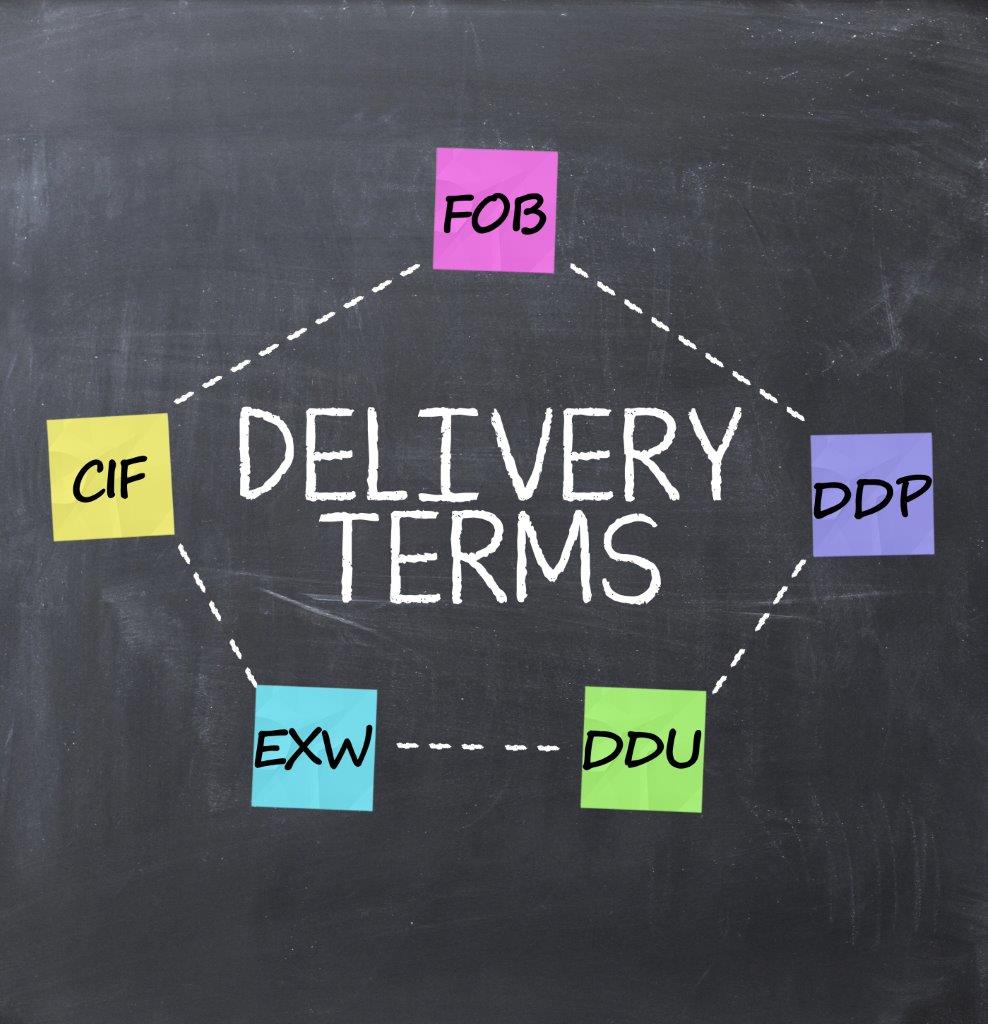Incoterms

EXW EX WORKS (…named place)
EX works – means that the seller fulfills his obligation to deliver when he has made the goods available at his premises (i.e. works, factory, warehouse, etc.) to the buyer. In particular, he is not responsible for loading the goods on the vehicle provided by the buyer or for clearing the goods for export, unless otherwise agreed. The buyer bears all costs and risks involved in taking the goods from the seller’s premises to the desired destination. This term thus represents the minimum obligation for the seller. This term should not be used when the buyer cannot carry out directly or indirectly the export formalities. In such circumstances, the FCA term should be used.
FCA FREE CARRIER (…named place)
Free Carrier – means that the seller fulfills his obligation to deliver when he has handed over the goods, cleared for export, into the charge of the carrier named by the buyer at the named place or point. If no precise point is indicated by the buyer, the seller may choose within the place or range stipulated where the carrier shall take the goods into his charge. When according to commercial practice, the seller’s assistance is required in making the contract with the carrier (such as in rail or air transport) the seller may act at the buyer’s risk and expense.
FAS FREE ALONGSIDE SHIP (…named port of shipment)
Free Alongside Ship – means that the seller fulfills his obligation to deliver when the goods have been placed alongside the vessel on the quay or in lighters at the named port of shipment. This means that the buyer has to bear all costs and risks of loss of or damage to the goods from that moment. The FAS term requires the buyer to clear the goods for export. It should not be used when the buyer cannot carry out directly or indirectly the export formalities.
DDP DELIVERED DUTY PAID (…named place of destination)
Delivered duty paid – means that the seller fulfills his obligation to deliver when the goods have been made available at the named place in the country of importation. The seller has to bear the risks and costs, including duties, taxes and other charges of delivering the goods thereto, cleared for importation. While the EXW term represents the minimum obligation for the seller, DDP represents the maximum obligation.
FOB FREE ON BOARD (…named port of shipment)
Free on Board – means that the seller fulfills his obligation to deliver when the goods have passed over the ship’s rail at the named port of shipment. This means that the buyer has to bear all costs and risks of loss of or damage to the goods from that point. The FOB term requires the seller to clear the goods for export.
CFR/CF COST AND FREIGHT (…named port of destination)
Cost and Freight – means that the seller must pay the costs and freight necessary to bring the goods to the named port of destination but the risk of loss of or damage to the goods, as well as any additional costs due to events occurring after the time the goods have been delivered on board the vessel, is transferred from the seller to the buyer when the goods pass the ship’s rail in the port of shipment. The CFR term requires the seller to clear the goods for export.
CIF COST,INSURANCE AND FREIGHT (…named port of destination)
Cost, Insurance and Freight – means that the seller has the same obligations as under CFR or CF but with the addition that he has to procure marine insurance against the buyer’s risk of loss of or damage to the goods during the carriage. The seller contracts for insurance and pays the insurance premium. The buyer should note that under the CIF term the seller is only required to obtain insurance on “minimum coverage”. The CIF term requires the seller to clear the goods for export.
CPT CARRIAGE PAID TO (…named port of destination)
Carriage paid to.. – means that the seller pays the freight for the carriage of the goods to the named destination. The risk of loss of or damage to the goods, as well as any additional costs due to events occurring after the time the goods have been delivered to the carrier, is transferred from the seller to the buyer when the goods have been delivered into the custody of the carrier. Carrier means any person who, in a contract of carriage, undertakes to perform or to procure the performance of a carriage, by rail, road, sea, air, inland waterway or by a combination of such modes. If subsequent carriers are used for the carriage to the agreed destination, the risk passes when the goods have been delivered to the first carrier. The CPT term requires the seller to clear the goods for export.